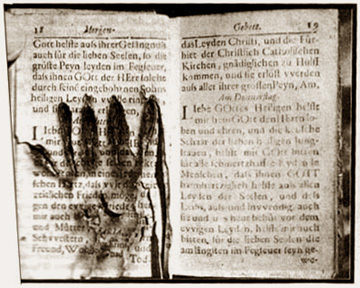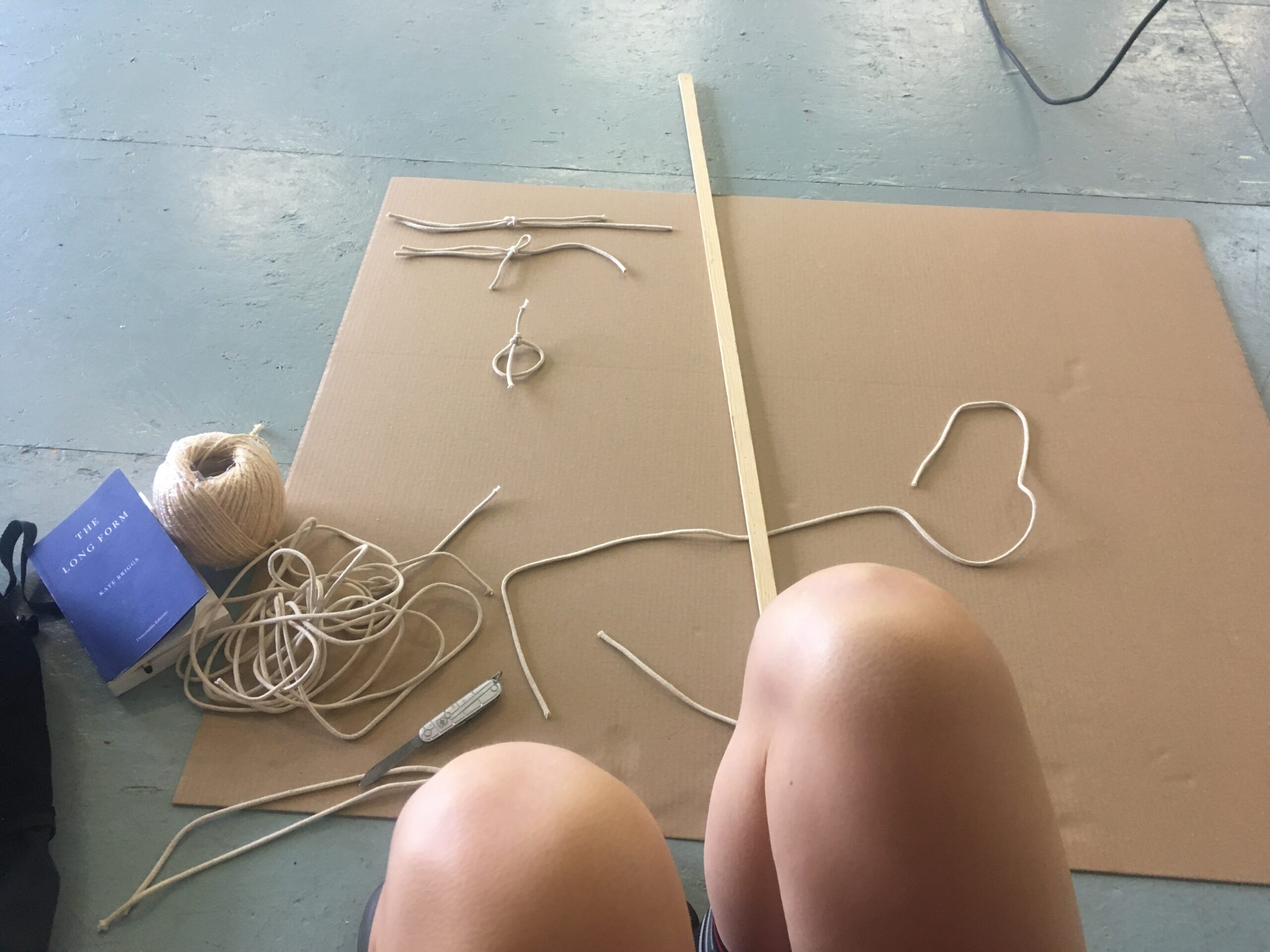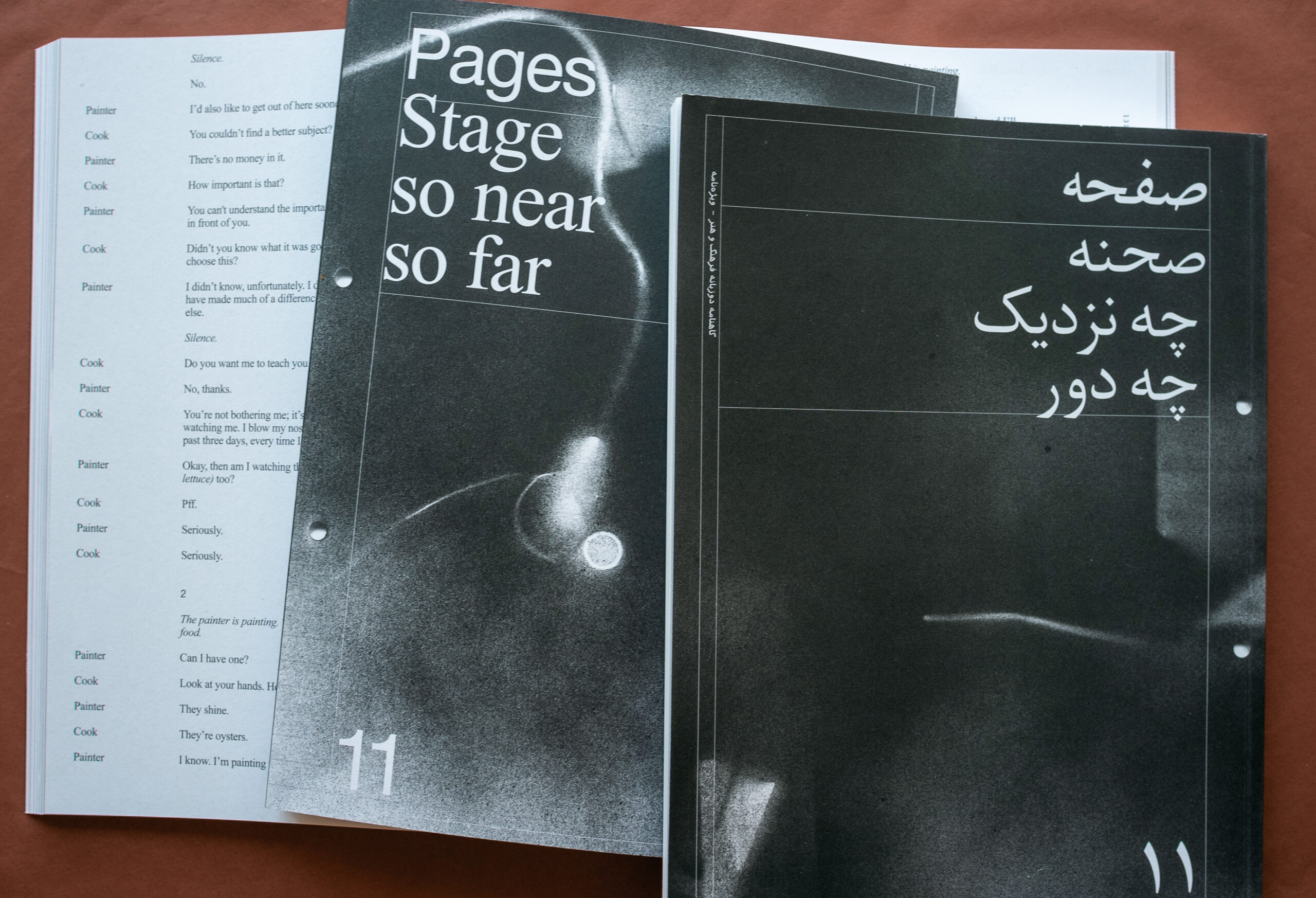research center
Breg Horemans, Davide Tidoni, Esteban Donoso, Lili M. Rampre, Pia Louwerens, Kristien Van den Brande Printer’s devils
4 January-4 April 2021
Research Center Cycle 2 Block III

One publishes to find comrades! So says André Breton. The researchers in the current cycle of the research centre — Breg Horemans, Davide Tidoni, Esteban Donoso, Lili M. Rampre and Pia Louwerens — are ending their trajectories at a.pass with a block focused on publishing, and the myriad of relations implied in committing something to print. Publishing is rarely something that concludes a confined process of solitary thought. It is a social process that — abstractly and manifestly — involves collaboration along the way: sometimes with fellow interlocutors, sometimes with an editor or designer at the other end of the table, sometimes with abstract ideas of what readership might entail. Rather than aiming for a book or for printed matter as a finite goal, we will take publishing as a pretext to build relationships that last over time. How can a publication be set up as an ongoing social gesture, a space for the continued production of meaning and reverberance?
This block has a weekly organization, whereby Tuesdays alternate between a technical-dramaturgical help-desk, and editorial-curatorial approaches. Help-desk Tuesdays are more loosely structured around practical needs of the collective and individual publications. How did you do this? Why would you do that? During the editorial-curatorial Tuesdays we work on a collective publication, addressing a breadth of concerns in publishing (commonplace books, performative publishing, the interplay between analogue and digital publishing, orality and transcription, co-writing, the power of address, self-writing, ventriloquism, reading as writing, distribution).
Read more..workshop
Sara Manente, Babak Afrassiabi and Nasrin Tabatabai, Kate Briggs Printer’s devils
26 June-7 July 2023 / a.pass & rile*

One publishes to find comrades! So says André Breton. The last block of a.pass ends with a focus on publishing, and the myriad of relations implied in committing something to print. Publishing is rarely something that concludes a confined process of solitary thought. It is a social process that — abstractly and manifestly — involves collaboration along the way: sometimes with fellow interlocutors, sometimes with an editor or designer at the other end of the table, sometimes with abstract ideas of what readership might entail, sometimes in dialogue with ordinary processes of living with, sometimes as a script with future enactment in mind, and most probably a bit of all of those at once. Rather than aiming for a book or for printed matter as a finite goal, we will take publishing as a pretext to build relationships that last over time. How can a publication be set up as an ongoing social gesture, a space for the continued production of meaning and reverberance?
Read more..performative publishing, postgraduate program, workshop
Sara Manente and Jaime Llopis MAGAZINES
26-27 June 2023 / a.pass

The 2 days workshop starts from looking into the possibilities given by the magazine as a format for artistic publications.
If any publication implies a multiplicity of relations and functions, depending on different expertise in the editing and printing process, a magazine entails as well a variety of authors and sources, a diversity of literary genres, and a large spectrum of relationships between the writer/performer and the reader/spectator. A magazine can also alter and play with the tensions and the hierarchies between the serious and the banal. All these features would overflow the centralized and isolated role of the editor.
Read more..performative publishing, postgraduate program, workshop
Kate Briggs LONG-ING
5-6 July 2023 / a.pass

The purpose of this workshop is to explore together (through talk, writing, scoring and movement) some key compositional questions. The particular focus is on length, experienced as sequence and duration, and how to achieve it. Long-ing: how to make things that carry on? (If only for a short while?) Once initiated, how and when to make them stop? Our work will involve looking closely at transitions: the links or breaks between the smaller parts of a composition, as well as beginnings and endings, rises and falls in energy and interest. It will draw on the processes operational in our most immediate surrounds (the different durations of the bodies, objects and forces composing our work-space) and use these as both constraints and materials. It will also involve bringing in certain powerful shapes and positions — social as well as aesthetic shapes such as the circle, the horseshoe or the line –, thinking about the work they do, then testing how to move from the one to other (from the clearing to the path, the scene to the summary). ‘I wish it were longer,’ it is written somewhere in Laurence Sterne’s Tristram Shandy, ‘for I like it truly.’ In the end, the project of long-ing might come down to this: to matters of feeling, liking or not liking, tensions producing curiosities or failing to, and we will consider these vital questions, too.
Read more..